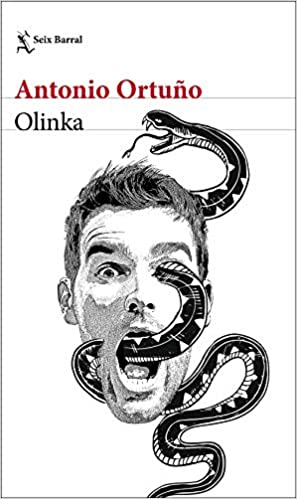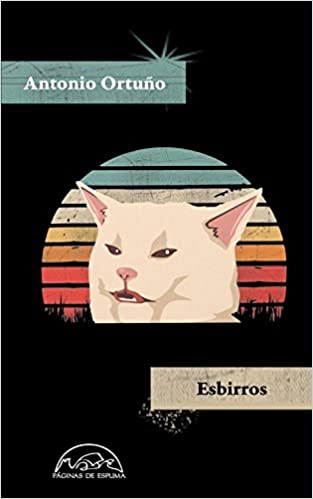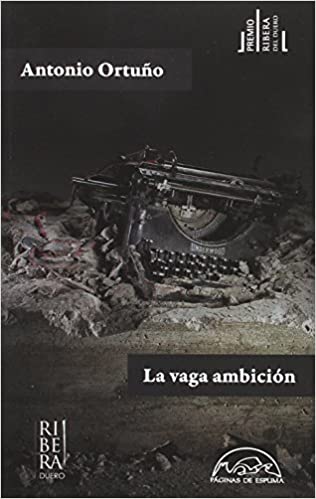Satirical to the point of deformity, with that bitter aftertaste on the palate that remains after the strange sweetness of literary revenge. A revenge against life, maturity or whatever it touches that arouses some resentment. Something like this is an Antonio Ortuño always giving birth to novels or stories full of life that break between flows and blood.
Ortuño is a creative spirit possessed by a mixture of Foster Wallace, cioran y Bukowski writing novels of singular suspense with six hands. Or maybe not. Perhaps we find reminiscences of some or others according to the reader's own evocations. Because nothing human is foreign to us and perhaps all novels are the same told from a different perspective. The important thing is what ends up emerging, the figure of the convincing narrator who authentically spreads over the identities of the characters, scenes, plots and descriptions of the visible and the intangible.
Thus we discover the writer without complexes who knows that writing can never be an act of lukewarmness or surrender. Writing is diving into oneself to the concerns that tried to escape from consciousness through some sinkhole. Rescued, then, from the most unusual escape, all ideas end up reaching us in the depths that need harmony to see some light.
Top 3 recommended novels by Antonio Ortuño
Olinka
Burned, marked by destiny. No other loser is as loser as those who are already back from hell, with a visa without gaps to mark hope or minimal peace. Like that fox that wanders through the forests in search of prey, the human being can also hide in the shadows of himself, lying in wait to provoke any extreme of evil, that of unbridled revenge or gratuitous harm.
After fifteen years of confinement, Aurelio Blanco leaves the prison where he was accused of fraud in Olinka, a luxury development built thanks to shady businesses and dispossession of communal lands. Out of loyalty to the Flores, his in-laws, Blanco took the blame with the promise that he would leave soon, but was left to fend for himself. Now, in freedom, he wants to recover what was taken from him: a home, a daughter, a life.
Olinka is a thriller that starts with a desire for revenge in the Mexican city of Guadalajara, capital and money laundering paradise. The construction of a utopian urbanization for scientists and artists serves as a background to reveal a reality in which corruption reigns. Antonio Ortuño explores an irrepressible problem in this novel: gentrification and the role of dirty money in it. And she does it with an implacable diaprosa, which strips each character and dissects the chaos of contemporary cities.
Minions
If you intend to reach the reader as Tyson did with his direct to the jaw, nothing better than the story. When the synthesis is blessed by inspiration, the result is a sum of stories like these. Few volumes of stories are born as children of the same litter. The stories arrive in installments, waiting for their moment. Everything ends up making sense when the little stories come together. And then yes, the creation seems like an unexpected, perfectly composed mosaic. When until recently it was somewhat broken into disjointed pieces of time.
Don't look for Disney stories or moral fables on these pages. They have just stumbled upon the force and force of the best Mexican literature. Antonio Ortuño, in his wildest book, navigates between satire and irony and forces us to peer into the double condition of victims and perpetrators that we have marked on our foreheads. Sometimes they oppress us and other times we oppress in the game of relationships and the amorality of power. All minions: the boss, the brother, the policeman, the murderer, if not oneself. We are masters, we are slaves and we share the survival and fall of these characters, who disgust, terrify or alarm us to the same extent that we recognize ourselves in them.
The vague ambition
Every writer ends up writing about writing at some point. The best thing is when this happens as a fiction where the omniscient narrator ends up finding himself trapped, locked in the story he intended to tell. Call it metaliterature, call it science fiction. He looks at you with the gesture of the figure inside the painting. Until he takes the floor and explains to you what living to tell the tale is all about.
Antonio Ortuño strips literary autofiction of languor and makes it boil with tragedy, irony and vitality. The protagonist of these interwoven tales ?? a forty-something writer, Arturo Murray ?? fight and survive between the family catastrophe of the past and a grotesque present, built with bad reviews, empty interviews, half-filled presentations, a bank account in increasingly red numbers ...
Yet throughout the six stories in this book, as a Falstaff armed with sarcasm and deep dramatic conviction, Murray invokes in his defense an army of heroic memories, a poignant sharpness, and a deep shock at loss. And, above all, the shadow of a fading mother and her kamikaze conviction to write, write always and at any cost.



